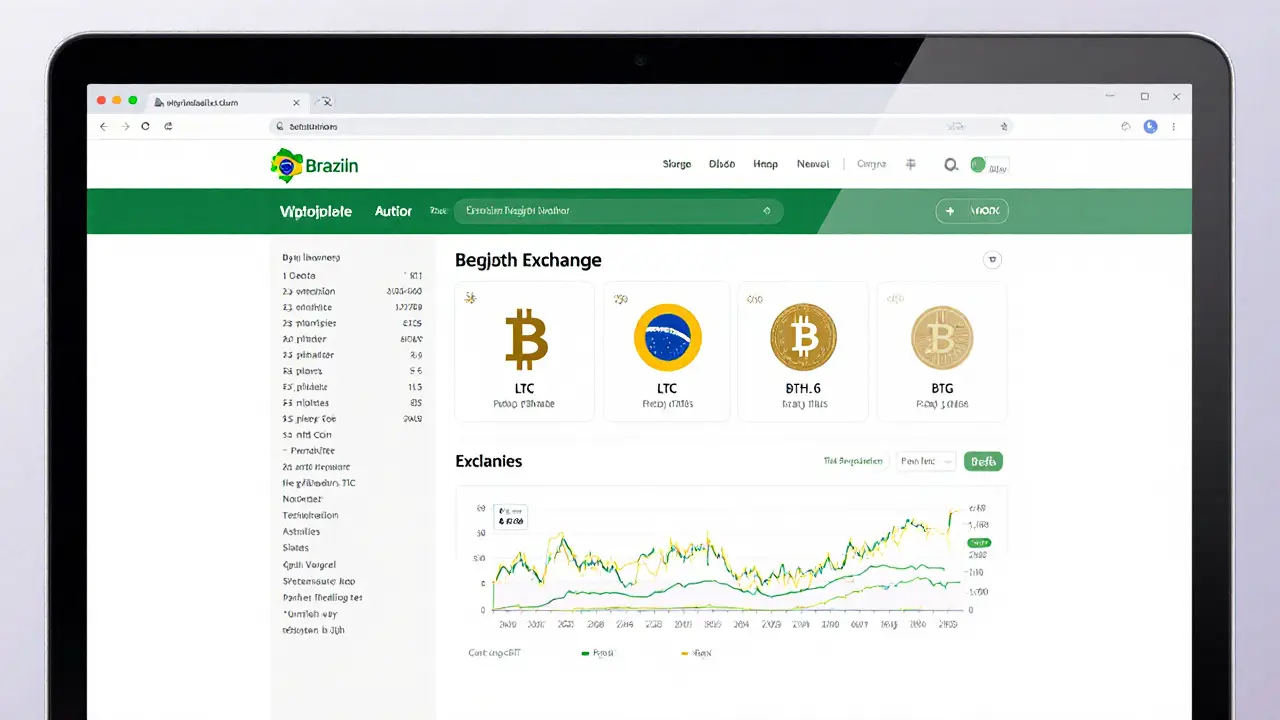Brazilian Crypto Exchange: What You Need to Know
When navigating Brazilian crypto exchange, a platform that lets you buy, sell, and trade digital assets under Brazil's legal framework. Also known as Brazil crypto platform, it offers local payment methods, BRL pairs, and compliance with tax rules, the first question is usually about safety. Is the service vetted by the Central Bank? Does it protect your funds against hacks? These concerns shape every trader’s decision.
Key Factors to Consider
Brazil imposes strict crypto exchange regulation, rules from the Central Bank and Receita Federal that require licensing, KYC, and transaction reporting. This means a regulated exchange must verify identities, monitor large moves, and file monthly reports. The rule set directly influences exchange security: platforms that follow the guidelines tend to invest in cold‑storage, multi‑factor authentication, and insurance. In practice, regulation ↔ security creates a trust loop – the tighter the compliance, the higher the user confidence.
Fees are the next big piece of the puzzle. Brazilian crypto exchanges typically charge a maker‑taker spread ranging from 0.1% to 0.5%, plus withdrawal fees that reflect local bank costs. Some services bundle fees into the price of the asset, while others list them separately. Knowing the fee structure helps you estimate real‑world costs and compare volume‑based discounts. Remember, lower fees can boost trading volume, but they shouldn’t come at the expense of security.
Liquidity matters just as much as price. A healthy exchange offers deep order books for major pairs like BTC/BRL and ETH/BRL, allowing you to enter and exit positions without slippage. Local liquidity often depends on partnerships with Brazilian banks and payment processors, which enable instant fiat deposits and withdrawals. When an exchange integrates with PIX, for example, you can move money in seconds, a speed advantage over many global platforms that rely on slower wire transfers.
Finally, consider the choice between centralized exchanges (CEX) and decentralized ones (DEX) that operate in Brazil. While CEXs provide user‑friendly interfaces, custodial wallets, and customer support, DEXs give you full control of private keys and often lower fees. However, DEXs may lack local fiat on‑ramps, making it harder to fund the wallet directly from a Brazilian bank. The trade‑off between convenience and sovereignty is a core decision point for Brazilian traders.
Below you’ll find a curated collection of articles that drill down into specific exchanges, airdrop opportunities, tax compliance tips, and security best practices. Dive in to get the details you need before you make your next move in the Brazilian crypto market.

Negocie Coins Review: Is Brazil’s Crypto Exchange Safe or Scam?
A detailed review of Negocie Coins, the Brazilian crypto exchange that promised BRL trading but vanished in 2020. Learn its features, security, red flags, and why it's now considered a scam.
